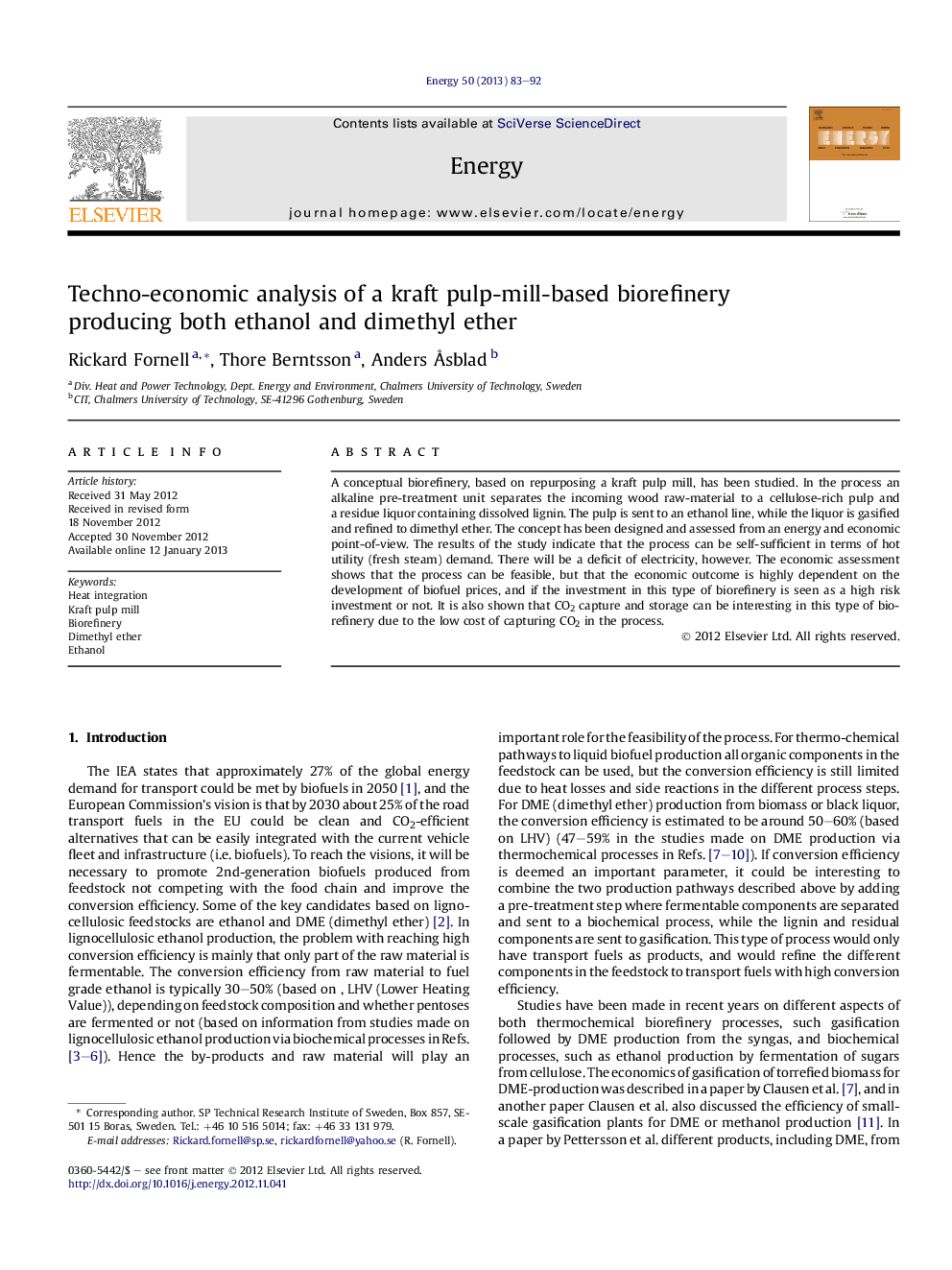| Article ID | Journal | Published Year | Pages | File Type |
|---|---|---|---|---|
| 1733219 | Energy | 2013 | 10 Pages |
A conceptual biorefinery, based on repurposing a kraft pulp mill, has been studied. In the process an alkaline pre-treatment unit separates the incoming wood raw-material to a cellulose-rich pulp and a residue liquor containing dissolved lignin. The pulp is sent to an ethanol line, while the liquor is gasified and refined to dimethyl ether. The concept has been designed and assessed from an energy and economic point-of-view. The results of the study indicate that the process can be self-sufficient in terms of hot utility (fresh steam) demand. There will be a deficit of electricity, however. The economic assessment shows that the process can be feasible, but that the economic outcome is highly dependent on the development of biofuel prices, and if the investment in this type of biorefinery is seen as a high risk investment or not. It is also shown that CO2 capture and storage can be interesting in this type of biorefinery due to the low cost of capturing CO2 in the process.
► Combining lignocellulosic ethanol and gasification for DME production. ► Different levels of heat integration assessed. ► Economic analysis reveals potential for the concept. ► Large sensitivity to investment costs and assumed product value.
